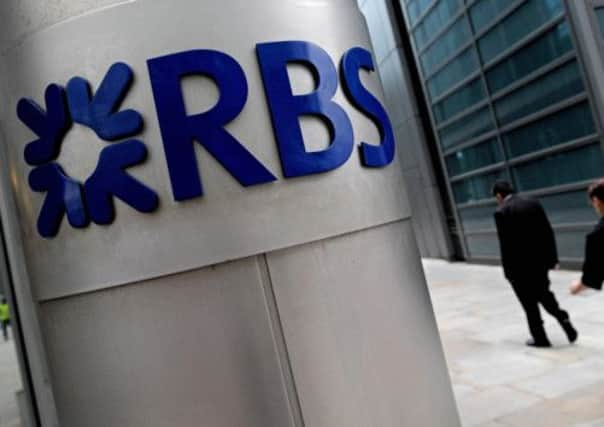Leaders: Rebuilding trust will be a task for RBS


The second relates to serious shortcomings in the day-to-day management of RBS, from its failure to meet targets on lending to small business through deficiencies in service to personal customers to another £250 million set aside for mis-selling payment protection insurance.
It is now highly unlikely there will be any start to the sale of the bank back to the private sector until well after the General Election. As if all this was not enough, RBS announced a bottom-line loss of £634m for three months to end September. Little wonder that, far from the internal “bad bank” resolution being hailed as a cure-all, shares in RBS slumped.Even in the darkest hours of October 2008, few believed that the recovery of what was then the UK’s largest bank would take eight years and a massive restructuring and shrinkage of its business. RBS will have been shorn of much of its global business. This unwinds not just the vainglorious acquisitions of the Fred Goodwin era but much of the overseas expansion undertaken by his predecessor, Sir George Mathewson.
Advertisement
Hide AdAdvertisement
Hide AdThat it has taken so long even to get to this stage is due to a protracted period of indecision on whether its bad loans, many of them incurred in Ireland by Ulster Bank – should have been left with the government or treated as a separate entity within RBS. This is a nettle that ought to have been grasped in 2009-10 rather than allowed to fester for the length of time that it did. Chancellor George Osborne has had to recognise that RBS’ problems – structural and cultural – will take longer to resolve before a share sale can be undertaken.
Arguably as problematic is the traumatic legacy of its near- collapse, which induced a deep reluctance within to lend, in particular to small and medium-sized businesses. A scathing report by Sir Andrew Large found RBS was performing so badly it was not even meeting its own targets. Meanwhile, a review by RBS into how it serves its individual customers is scheduled to report next year. All this leaves the bank’s new chief executive, Ross McEwan, with a still mountainous task. There is much to do to overhaul the bank’s lending practices, move away from the sales target-driven excesses of the previous era and improve its overall service to customers.
Once complete, RBS will revert to being a domestically focused retail bank, stripped down to those core competencies that it should never have deserted. The biggest challenge will be to rebuild customer and investor trust. That, given the widespread loss of confidence, is a daunting undertaking.
Newsnight of the living dead
Halloween it may have been. But was it right for the earnest BBC Newsnight interviewer to launch into a rendition of Michael Jackson’s Thriller dance at the end of the current affairs flagship show? Many would argue Ms Wark is scary enough without springing from her seat and taking part in a bizarre Zombie group dance.
“Light, innocent fun” is broadly the response from Newsnight editor Ian Katz. He has brought a series of zany items to the programme. Many devotees see it as the advent of “dumbing down”. What next? Jeremy Paxman as Captain Birdseye? It was a brief appearance – it was competently done and Kirsty Wark’s dance appearance was quickly swallowed up by other performers. But for a serious news analysis programme, discretion here was surely the better part of valour. It might have been more acceptable had this occurred away from Newsnight and as a guest appearance on a light entertainment show given over to music and comedy routines. Newsnight has enough battles to fight and needs to guard its hard-won authority. We turn to its presenters for analysis, insight and – very often – serious and unsparing interviews with politicians and public figures.
For these to retain their impact and resonance we need presenters whom viewers – and interviewees – take seriously. Some fear in this the thin edge of a wedge that may work to undermine its raison d’etre. Is this what viewers expect? And there is no lack of TV dance and talent shows for those who like to watch them. Is there a demand for bursts of serious current affairs coverage on Strictly Come Dancing? If not, why should Newsnight give any of its time to Britain’s Got Talent?